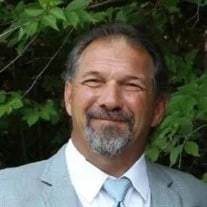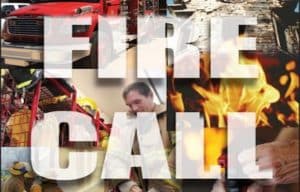Charges in tow truck tragedy

Nearly a year after the death of a local tow truck driver, charges were filed in connection with the incident.
Jason Hale, 48, of DeSoto, Mo., was charged Oct. 10 in Monroe County Circuit Court with felony passing an emergency vehicle resulting in injury/death.
Court information alleges that on Nov. 29, 2023, Hale “failed to yield the right-of-way by making a lane change into a lane not adjacent to that of the authorized emergency vehicle.”
The crash resulted in the death of 57-year-old Wade Bivins of East Carondelet, who was working to tow a vehicle on I-255 in Columbia at the time.
The charges against Hale come with a suspension of driving privileges for two years, and he is set to appear in court for a Nov. 4 preliminary hearing.
As previously reported, emergency personnel responded about 10:15 a.m. on the I-255 curve toward St. Louis just past the Columbia exit onto Route 3.
Illinois State Police said a vehicle was broken down on the right shoulder of the road. In the process of removing the disabled vehicle, Bivins was loading it up to the back of his truck when he walked around the left side of his truck and was fatally struck by a vehicle traveling southbound.
Bivins’ funeral took place some days later, preceded by a procession of tow trucks from all over the area recognizing him by driving through the Columbia-East Carondelet-Dupo area.
On top of being a tow truck driver, Bivins was also active in the community as a volunteer firefighter in Prairie du Pont, notably doing a great deal of work sandbagging during the Flood of 1993.
East Carondelet Mayor Herb Simmons previously spoke about Bivins who was his friend for over 40 years, describing how incredibly giving he was, never saying no and willing to drop whatever he was doing to help someone when they needed it.
Nicole O’Bryan of Paw Paw Towing in Cahokia, the towing company Bivins worked for, also spoke about her friend following his death, likewise describing him fondly as a “people-pleaser” who “was always there to help.”
O’Bryan spoke more recently with the Republic-Times, discussing some of the developments that have come about in the year since the community lost Bivins.
Shortly after his death, O’Bryan set to work in an effort to change the lights tow truck drivers are allowed to use from the standard amber and white to the red and blue lights used on first responder vehicles.
As she recalled, she wrote letters to various politicians throughout the state, ultimately winding up in the company of 111th District Rep. Amy Elik of Madison County.
“She said that she was currently working on that same project, and she wanted to partner with me so we could work together to try to make this go through,” O’Bryan said. “We had a lot of kickback from the Illinois State Police. They did not want red and blue in Illinois. We thought about different colors, and we settled on the color green.”
O’Bryan offered further explanation on the pushback from ISP.
“In the state of Illinois, a tow truck is not considered to be a first responder,” O’Bryan said. “We are an emergency responder, but not a first responder. They are afraid that if they allow us to have the red and blue lights, we will use them to travel on the interstate and move traffic, which is not our intention at all. I can’t speak for every tow truck driver, but that’s not what we would do. We would use them to draw attention to ourselves when we are on the side of the interstate so we don’t get hit.”
She further explained that only two states in the U.S. – Minnesota and Missouri – recognize tow truck drivers as first responders and thus allow them to have red and blue lights on their vehicles.
As O’Bryan described, drivers have a far different response to red and blue flashing lights compared to amber and white. As she said, people speeding on the interstate know to take their foot off the accelerator and make way when they see red and blue.
“I have seen them used in Missouri, and people move over immediately thinking it’s a police officer,” O’Bryan said.
While not the original goal, she did express satisfaction at the changing of tow truck lights to green.
O’Bryan said response to this idea within state government was very strong. After she drummed up substantial support for the bill among tow truck companies, responder groups and others, she gave a speech in Springfield and the bill passed both houses of the Illinois General Assembly unanimously.
Signed by Gov. J.B. Pritzker back on July 19, the law will go into effect Jan. 1 and set Illinois in line with Virginia in allowing tow trucks to use green lights.
Per O’Bryan, Virginia’s rate of tow truck driver fatalities has notably dropped since that state’s change went into effect.
“In my mind, the green lights are going to draw attention,” O’Bryan said. “There are no green lights in Illinois. People don’t see them. So when you see a flashing green light, it’s gonna grab your attention, you’re gonna look at it and you’re gonna think ‘What is that, and why is it there?’ And that’s the whole point is to draw attention to us so people see us, and they know we’re there.”
O’Bryan’s efforts in raising awareness for her fellow tow truck drivers has also seen her address future drivers.
She recently addressed drivers ed students at Dupo High School, emphasizing the importance of recognizing Scott’s Law which requires drivers to slow down and shift lanes away from emergency vehicles displaying flashing warning lights.
She stresses to all motorists that a tow truck on the side of the road is a sure sign that a person is standing on the side of the road.
“We’re outside the truck, and I don’t think people realize that there’s an actual person next to that truck somewhere,” O’Bryan said. “Whether you see them or not, they’re there.”
Regarding Bivins, she also spoke about how her friend and colleague was recognized early this month by the International Towing Museum’s Memorial in Tennessee as he was memorialized along with several other tow truck drivers and service workers who had died in similar incidents.
O’Bryan noted that this isn’t simply a memorial, however, as it serves as a network for the families of these deceased, providing support such as scholarships and donations to widows and widowers.
“I think it’s great that they have that,” O’Bryan said. “I think it’s horrible that we have to have it.”
On Hale and the news of the recently filed charges, O’Bryan was somewhat pessimistic.
She noted how these charges come almost a year after Bivins’ death. This is in stark contrast to other incidents such as the recent death of an officer in St. Louis who was killed when he was struck by a vehicle while responding to an accident along I-70 in the city.
O’Bryan was also skeptical of the severity of the charges, as violations of Scott’s Law resulting in death carry a penalty of one to three years in prison.
Along with her progress in having tow truck lights changed, she said she is also pursuing harsher punishments for violating Scott’s Law.
She stressed the damage that was done by Hale last year.
“He pretty much broke a whole community in half,” O’Bryan said. “Everybody crumbled when they lost Wade. My family hurt, Wade’s family hurt. He had so many friends… The heartache that we experienced is not gonna be any better after he’s behind bars for his two years.”
Recognizing the progress for tow truck drivers that has already been made in the wake of Bivins’ death, O’Bryan continues to push for changes.
She noted her plans to continue addressing schools about Scott’s Law, hopefully getting such information properly added to drivers ed curriculums in an effort to make the next generation of drivers more cautious and alert.
She also said she is considering the possibility of pursuing a change on the federal level, establishing distinct emergency lights for tow truck drivers throughout the country.
With both ongoing and future progress, however, O’Bryan would hope for these improvements to come much faster than they seem to be.
“I feel like things are moving very slowly,” O’Bryan said. “I wish I could make them happen faster. I wish I could get the green lights on the trucks already. I wish we didn’t have to wait until January.”






